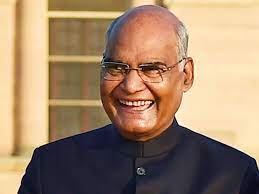Utopia Bedding Throw Pillows Insert (Pack of 2, White) - 18 x 18 Inches Bed and Couch Pillows - Indoor Decorative Pillows
$15.99 (as of April 16, 2024 20:52 GMT +00:00 - More infoProduct prices and availability are accurate as of the date/time indicated and are subject to change. Any price and availability information displayed on [relevant Amazon Site(s), as applicable] at the time of purchase will apply to the purchase of this product.)In India, there has been a long-running standoff between the judiciary and the government over the appointment of Supreme Court and High Court judges. The Supreme Court has said it will not allow the appointment process of judges to be hijacked.
The Chief Justice of India has said that there are about 500 vacancies in various High Courts of the country, which is equal to half of all judges.
The names of judges for the vacancies have been sent to the government for approval several months ago, but after a long time, the names have not been approved yet, leading to a backlash from judges in the high courts Lack
According to the Chief Justice, more than 4 million cases are pending in various High Courts. About one million cases are pending in the Allahabad High Court alone. The whole judicial system is in disarray. The accused has already served a life sentence by the time the appeal hearing of a case is completed.
A total of more than 20 million cases are pending in the high and lower courts. Of these, at least 2.2 million cases are ten years old. What justice can be done in these cases? The clash between the Supreme Court and the current government erupted when the government, by consensus of political parties, passed a law in Parliament appointing a Judicial Appointments Commission for the appointment of judges.
According to experts, the purpose of this law was to eliminate the supremacy of the Supreme Court in the appointment of judges of the Supreme Court and the High Court. The law was declared unconstitutional by the Supreme Court in October last year. So far, the appointment of judges has been done by a collegium of senior judges headed by the Chief Justice.
Following the rejection of the new appointment law, the government and the collegium are trying to come up with a new procedure, but many questions remain unanswered. The Supreme Court has said that the appointment of judges cannot be stopped till the process is finalized. In a brief debate in India’s parliament last week, most political parties criticized the collegium system and backed a new approach.
The government feels that there are flaws in the collegium system and that many qualified legal experts are not being represented as judges, while the Supreme Court feels that political parties want to deprive the judiciary of its independence and judges. Through its supremacy over the appointment system, it seeks to subjugate the judiciary. Whatever the reality, there is a huge rift between the judiciary and the government at the moment, but the darkest aspect of this whole debate is that the judicial system in India is failing miserably.
The process of justice is so complex, costly, and lengthy that it is beyond the reach of most of the country’s population. Apart from the lower courts, the judiciary is one of the few institutions in India that is considered independent and generally above corruption, but it too has been badly damaged due to its outdated procedures, lack of judges and lack of major constitutional reforms.
The focus of political parties is on limiting the powers of judges in their appointments. There is no debate on how to make the process of justice easier, more transparent and faster for the common man.




